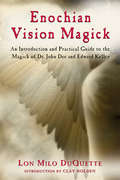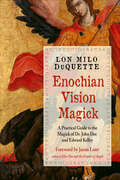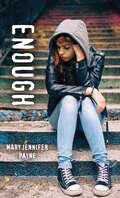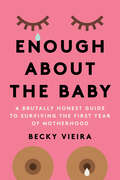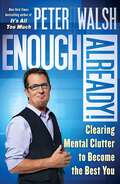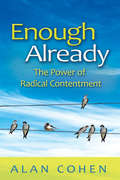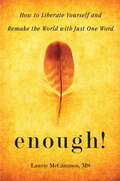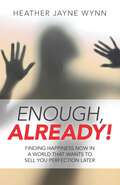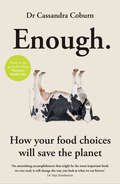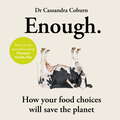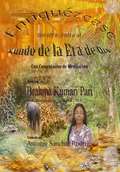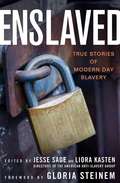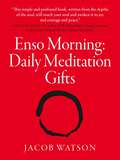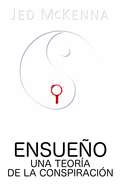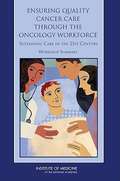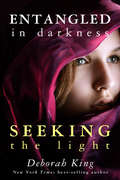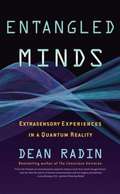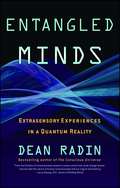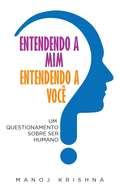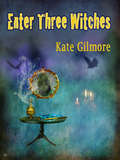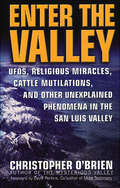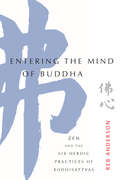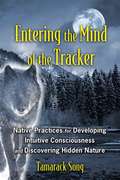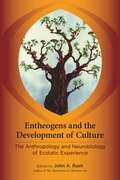- Table View
- List View
Enochian Vision Magick
by Lon Milo DuquetteDr. John Dee (1527-1608) was one of the greatest minds of the Elizabethan Age, and his system of angelic communication was the result of the most dramatic magical operation ever recorded. It has survived to become the cornerstone of the modern ceremonial magician's practice. In 1582 Dee and his clairvoyant partner Edward Kelley made magical contact with a number of spiritual entities who identified themselves as angels -- the same that communicated with Adam, Enoch, and the patriarchs of the Old Testament. Over the next three years they revealed to Dee and Kelley three distinct magical systems of vision magick. The third and last of these incorporated a series of "calls" to be recited in an angelic language in order to raise the consciousness of the magician to a level where angelic contact is possible. Best-selling author and magician, Lon Milo DuQuette, who has practiced Dee's system for over twenty-five years, has seized upon elements of the original Dee material overlooked by adepts of the Golden Dawn, Aleister Crowley, and other modern magicians, and brought them to light in Enochian Vision Magick>/i>. DuQuette offers the expert and novice alike the practical means by which they can become attuned in the same simple step-by-step manner that first prepared Dee and Kelley. There has never been a book on Enochian magick like this one.
Enochian Vision Magick: A Practical Guide to the Magick of Dr. John Dee and Edward Kelley
by Lon Milo DuQuette“The greatest guide ever written—by our greatest living teacher of magick—to the greatest occult system on Earth.” —from the forward by Jason Louv, author of John Dee and the Empire of AngelsHaving mastered the arts and sciences of his age, Elizabethan magus Dr. John Dee (1527–1608) resolved that worldly knowledge could no longer provide him the wisdom he desired, and as did so many other learned men of the day, he turned his attention to magick. In 1582 he and his clairvoyant partner Edward Kelley made magical contact with a number of spiritual entities who identified themselves as angels—the same that communicated with Enoch and the patriarchs of the Old Testament. Over the next 3 years they revealed to Dee and Kelley three distinct magical systems of vision magick. The third and last of these incorporated a series of “calls” to be recited in an angelic language in order to raise the consciousness of the magician to a level where angelic contact is possible.In Enochian Vision Magick, Lon Milo DuQuette introduces the origins of Enochian magick and offers the expert and novice alike the opportunity not only to see the big picture of the full system but also the practical means by which he or she can become attuned in the same step-by-step manner that first prepared Dee and Kelley.First published by Weiser in 2008, this new edition includes a new introduction and new back matter by the author as well as a new foreword by Jason Louv.
Enough (Orca Soundings)
by Mary Jennifer PayneLife hasn't been easy for fifteen-year-old Lizzie Jackson since her father's sudden death four years ago. Shortly after he died, her mother, Lydia, began dating and drinking herself into oblivion, leaving Lizzie to parent her younger brother, Charlie. Things go from bad to worse when Lydia marries Dean. To protect Charlie from Dean's rage, Lizzie makes herself the target of his abuse. But when Dean sexually assaults Lizzie, things change forever. Can she continue to ensure her brother's safety after she flees their home?
Enough About the Baby: A Brutally Honest Guide to Surviving the First Year of Motherhood
by Becky VieiraAn unapologetic guide to the first year of motherhood, Enough About the Baby is a newborn book for women who recognize the necessity of self-care—even if sometimes the rest of the world does not. Superheroes don&’t have babies; real and imperfect non-superhumans do. When we come to terms with this, the result is a happier and less traumatizing start to motherhood. Becky Vieira, the mom behind the popular Instagram account @wittyotter, provides actionable advice for new parents on what to expect after pregnancy and how to successfully navigate the frustrations and challenges that come with having a baby. Vieira draws on her own experiences and interviews with moms and experts to get to the bottom of the toughest and most taboo topics—from managing nosey in-laws and an anxious partner to surviving the first postpartum poop and when to seek out treatment for postpartum depression. This book is filled with hacks, tips, and tricks that only the most seasoned—and enlightened—mom knows. (Ever hear of a condsicle, an ergonomic ice pack for a battered nether region?) Vieira reminds readers that motherhood shouldn&’t be martyrdom, and a new mom who puts her needs first often isn&’t selfish at all.With its combination of practical advice and the signature humor that made Vieira a hit on Instagram, Enough About the Baby makes a perfect baby shower gift for first time moms.
Enough Already!: Clearing Mental Clutter to Become the Best You
by Peter WalshDoes your life feel out of balance? Peter Walsh can help you tackle everything in your busy life.Most of us are so overwhelmed by work, bills, and school and family commitments that we rush from person to person and place to place without ever feeling satisfied—sometimes giving one area of our lives too much attention and other areas not enough. It’s always too little or too much! This crazy imbalance and the resulting stress and unhappiness you feel are the clutter that Peter Walsh helps you tackle in Enough Already! Peter starts by explaining how the six key areas of your life—Family, Relationships, Work, Health, Money, and Spirituality are interrelated. He then shows you how, if one area of your life is cluttered, that clutter will creep into the other areas creating turmoil and imbalance in your life, family, work, and personal life. Peter offers a step-by-step plan to help you acknowledge and address the emotional and mental clutter that continually holds you back from living the more fulfilling life you deserve. With his wry humor, constant encouragement, and the specific tips and practical advice he offers, Peter shows how to prioritize what matters in your life; let go of the stress and clutter; and regain your balance, focus, energy, and purpose. By following his simple plan you will begin to view your life and how you spend your time and energy in a completely new way. By embracing Peter’s approach you will finally be able to live a stress-free life of balance and fulfillment—the life that’s been buried under all your emotional clutter for years and the one you’ve always imagined.
Enough Already: The Power Of Radical Contentment
by Alan CohenIn a world where fear, crisis, and insufficiency dominate the media and many personal lives, the notion of claiming contentment may seem fantastic or even heretical. Yet finding sufficiency right where you stand may be the answer to a world obsessed with lack. In his warm, down-to-earth, and believable style, Alan Cohen offers fresh, unique, and uplifting angles on coming to peace with what is before you and turning mundane situations into opportunities to gain wisdom, power, and happiness that does not depend on other people or conditions. Peppered with many true-life anecdotes and inspiring examples, Enough Already embraces the desire for change and improvement as part of the journey. Sometimes getting fed up with situations that are not working delivers the impetus to create better ones. You will be moved, illuminated, and tickled to find that what you seek may already be within your grasp and surely within your potential. If contentment is radical, then this book may well spur a revolution of well-being!
Enough!: How to Liberate Yourself and Remake the World with Just One Word
by Laurie McCammonChallenge Your Never-Enough ThinkingThe idea that we aren’t enough is so deeply ingrained in us and into our culture that it holds sway over pretty much every aspect of our lives. But author and activist Laurie McCammon is here to tell us that it’s all a lie. YOU are enough exactly as you are, and it is only in realizing this truth that we unlock our ability to make our world a better place.Believe in yourself. Do you think you’re not good enough-not rich enough or thin enough or smart enough-to have the life you want? Time, money, and talent aren’t going to bring us what we’re seeking. The validation we feel we need can only come if we accept ourselves as we are. Laurie McCammon has brought her message of enoughness across the world, presenting at the United Nations Commission on the Status of Women, and facilitating circles and workshops over the years. This inspirational and transformative book reminds readers of their self-worth and helps them combat lack of self-confidence. By the end, the message will ring true and clear in every reader’s heart: I am enough!Change the world. “Never-enough” thinking can hurt us in more ways than one. But one of the biggest ways it impacts us is by limiting what we think we are capable of accomplishing. When we accept the truth of our enoughness, our self-image is transformed and we see just how capable we are. McCammon shows readers how developing a sense of enoughness can change not only how you feel about yourself but how you view time, your relationships, your work, and your ability to shape a better world.Open up this motivational book and learn more about:The lie that shapes how we view ourselvesHow to find your own self-worthDeveloping a sense of “enoughness” in today’s worldIf you enjoyed books like Self-Compassion: The Proven Power of Being Kind to Yourself,The Gifts of Imperfection, The Mindful Path to Self-Compassion, or Good Morning, I Love You; then you’ll love Enough! by Laurie McCammon.
Enough, Already!: Finding Happiness Now in a World That Wants to Sell You Perfection Later
by Heather Jayne WynnHeather Wynn is on a mission to transform the conversation about women and fitness. She knows you can&’t hate your body into true health. Instead, through the practices in this book, you&’ll learn to make sane and lasting health and physique changes and finally arrive at a place of peace and love - of which you&’ve been worthy all along. Heather&’s insightful anecdotes from her personal journey as well as her professional work with clients, help us recognize the absurdity of the expectations for our bodies that we allow outside influences to determine for us, and the type of lifestyle we think we need to live in order to be healthy and fit. After reading this book you will feel empowered to step off the diet roller coaster for good, quiet the negative voices, and reclaim your life and health. The best part? Heather will give you the tools to do it! (From the Foreword by Molly Galbraith)
Enough: How your food choices will save the planet
by Dr Cassandra Coburn***'An astonishing accomplishment that might be the most important book we ever read, it will change the way you look at what we eat forever.' - Dr Max Pemberton'A wonderfully written guide for anyone who wants to eat better and save the world at the same time. Essential reading for anyone who cares about the planet.' - Thomasina MiersHow changing what you eat can save the planetOur food production systems are the single biggest cause of environmental change, while diseases linked to our eating habits are at epidemic levels and increasing. Enough. uses the latest scientific research to address this vital question: can we provide a growing population with a healthy diet from sustainable food systems? Fortunately for us all, the answer is yes. Enough. shows exactly how we can tackle both of these urgent, interconnected challenges at the same time. Using a seminal piece of research published in 2019, the Planetary HealthDiet (PHD), Dr Coburn reveals the hidden consequences of our food choices, and how we can easily make changes which are better for ourselves and the planet. She details which food groups we should be eating, which we should avoid - and why. Changing our way of eating is something that every one of us has the power to do. Enough. is a clear, ultimately hopeful and hugely important roadmap for both own health - and the planet's.
Enough: How your food choices will save the planet
by Dr Cassandra Coburn***'An astonishing accomplishment that might be the most important book we ever read, it will change the way you look at what we eat forever.' - Dr Max Pemberton'A wonderfully written guide for anyone who wants to eat better and save the world at the same time. Essential reading for anyone who cares about the planet.' - Thomasina MiersHow changing what you eat can save the planetOur food production systems are the single biggest cause of environmental change, while diseases linked to our eating habits are at epidemic levels and increasing. Enough. uses the latest scientific research to address this vital question: can we provide a growing population with a healthy diet from sustainable food systems? Fortunately for us all, the answer is yes.Enough. shows exactly how we can tackle both of these urgent, interconnected challenges at the same time. Using a seminal piece of research published in 2019, the Planetary HealthDiet (PHD), Dr Coburn reveals the hidden consequences of our food choices, and how we can easily make changes which are better for ourselves and the planet. She details which food groups we should be eating, which we should avoid - and why. Changing our way of eating is something that every one of us has the power to do. Enough. is a clear, ultimately hopeful and hugely important roadmap for both own health - and the planet's.
Enough: How your food choices will save the planet
by Dr Cassandra CoburnWe produce and eat unhealthy food, killing ourselves and the planet in the process. Food production systems are the single biggest cause of environmental change to the planet. And the food we are producing is killing us - more than a quarter of the world's population is overweight or obese, and deaths from stroke, heart attack, cancer, diabetes etc are at epidemic levels. It's easy to feel helpless. In 2019 a seminal piece of research was published which, for the first time, made clear recommendations for a way to produce food and to eat that would save both the planet's resources and our own health. The Planetary Health Diet was the culmination of years of research by 37 eminent scientists of various backgrounds into this question - can we provide a growing population with a healthy diet from sustainable food systems? The answer is yes. Enough is a practical explanation of the Planetary Health Diet's research, allowing everyone to understand the science and to adopt its recommendations in our daily lives. The PHD specifies the food groups we should be eating. But what does a diet composed of, for example, 30% carbohydrates really look like? Which carbs, exactly? The diet is largely plant-based but does encompass meat and fish - but how many servings? It also explains what the nine 'planetary boundaries' are, that our food production systems must not exceed - from the quantities of nitrogen and phosphorus in the ecosystem to freshwater use. As a scientist and journalist Dr Cassandra Coburn is brilliantly placed to provide this clear, ultimately hopeful and hugely important roadmap for own future health, and that of the planet. (p) 2021 Octopus Publishing Group
Enriquézcase mientras entra al Mundo de la Era de Oro (Con Comentarios de Meditación)
by Brahma Kumari Pari ANTONIO SANCHEZ RODRIGUEZ TranslatorUtilizando las practicas sugeridas en este libro, le ayudara a mejorar sus condiciones de Vida, Espiritual y Financiero. Este libro le explica, como puede volverse Rico, Financieramente y/o Espiritualmente, y obtener lo que usted quiera, mientras entra a la Era de Oro (vía el Universo Holográfico). Mientras que las explicaciones le son dadas, de cómo utilizar a Dios y su conocimiento para lograr sus objetivos, el autor también le explica, los siguiente: 1. Sobre las habilidades mágicas (Siddhis) y las especialidades, que usted adquiere mientras utiliza las prácticas de este libro. 2. Por qué la Ley de Atracción trabaja para traerle abundancia, felicidad, etc. 3. Por qué y cómo las visualizaciones pueden ser materializadas. 4. Por qué el estar cerca de una dimensión superior, donde Akashic Records existe, le ayudara a fácilmente realizar sus sueños. 5. El como usted fácilmente puede desempeñar el papel del creador (Brahma) desde Brahmaloka con el fin de lograr lo que usted quiere. 6. Como y cuando usted está en el Mundo de Brahma, el Éter también desempeña el papel de Brahma y crea lo que usted quiere. 7. Al usar las energías en lo profundo del alma, usted es Dios mismo o Brahma y así será capaz de satisfacer sus deseos y necesidades. 8. De como es materializada a través de frecuencias, resonancia, etc. 9. Sobre readquirir salud, prosperidad y habilidades mágicas, ahora. 10. De como la Energías Cuánticas, el Drama del Mundo, la Naturaleza, etc., sirve a las personas que están entrando en el Mundo de la Era de Oro y quienes ya están en la Era de Oro. 11. De como los cuerpos perfectos son creados para aquellos que están entrando en la Era de Oro. 12. De cómo l
Enslaved: True Stories of Modern Day Slavery
by Gloria Steinem Jesse Sage Liora KastenToday, millions of people are being held in slavery around the world. From poverty-stricken countries to affluent American suburbs, slaves toil as sweatshop workers, sex slaves, migrant workers, and domestic servants. With exposes by seven former slaves--as well as one slaveholder--from Southeast Asia, Africa, Europe, the Middle East, and the United States, this groundbreaking collection of harrowing first-hand accounts reveals how slavery continues to thrive in the twenty-first century. From the memoirs of Micheline, a Haitian girl coerced into domestic work in Connecticut, to the confessions of Abdel Nasser, a Mauritanian master turned abolitionist, these stories heighten awareness of a global human rights crisis that can no longer be ignored.
Enso Morning: Daily Meditation Gifts
by Jacob WatsonEnso Morning: Daily Meditation Gifts presents over 160 Morning Blessing Letters to awaken, stimulate and deepen meditation and spiritual practice. In the tradition of Robert Frost and Wendell Berry, Jacob uses poetic images and personal experiences of New England nature, the birds, animals, woods, and beaches of coastal Maine, to awaken readers to begin their day nurtured and encouraged to be themselves, joined with like-minded souls. The personal letters in Enso Morning: Daily Meditation Gifts provide a friendly, comforting and accessible way to wake up and affirm the whole self. Each letter has seven brief paragraphs that offer a welcome to the day, a silent meditation, affirmations of body, heart and soul, a blessing and a gift for each day.
Ensueño. Una Teoría de la Conspiración
by Marisa Gonzalez Aguiar Jed McKennaSi la vida no es más que sueño, ¿a qué nos despertamos? La premisa central de Ensueño: Una Teoría de la Conspiración, es la verdaderamente ridícula pero indisputable afirmación de que el universo no existe. Esto es algo que se puede entender conceptualmente, como mirar un documental acerca de la Antártica, o experimentalmente, como mudarse a la Antártica. También existe un fenómeno relacionado en el cual te duermes mirando el documental y te despiertas en el páramo congelado. Eso debe ser extraño, pero la verdad es que estás dormido en un páramo desértico soñando que no lo estás, y eso es lo que te sucede cuando te despiertas.
Ensuring Quality Cancer Care through the Oncology Workforce: Sustaining Care in the 21st Century
by Institute of MedicineThe American Society of Clinical Oncology (ASCO) predicts that by 2020, there will be an 81 percent increase in people living with or surviving cancer, but only a 14 percent increase in the number of practicing oncologists. As a result, there may be too few oncologists to meet the population's need for cancer care. To help address the challenges in overcoming this potential crisis of cancer care, the National Cancer Policy Forum of the Institute of Medicine (IOM) convened the workshop Ensuring Quality Cancer Care through the Oncology Workforce: Sustaining Care in the 21st Century in Washington, DC on October 20 and 21, 2008.
Entangled In Darkness: Seeking The Light
by Deborah KingCome take an epic journey from darkness into the light with one of today’s foremost spiritual masters!Noted teacher, healer, and New York Times best-selling author Deborah King leads you on an excursion into the inner sanctum of your own soul, so you can understand why you are here and the purpose of the age-old battle between light and dark that’s being waged within you.This book will deepen your insight into how and why you can be entangled in darkness and give you practical tools for infusing your life with Light—allowing you to raise your consciousness, moment by moment, each and every day. With many real-life examples of both darkness and light, you will be able to distinguish between the two in yourself and others and avoid the pitfalls that could lead you astray.You will learn about the incredible strength of unconditional love—the source of true happiness—and how to unearth your own inherent capabilities in order to tap into this powerful force and live in the light.This book has been impressed by Deborah with the Energy of the Ages. By holding it in your hands, you too are the recipient of this universal vibration of boundless love.
Entangled Minds: Extrasensory Experiences in a Quantum Reality
by Dean RadinIn this illuminating book, Radin shows how we know that psychic phenomena such as telepathy, clairvoyance, and psychokinesis are real, based on scientific evidence from thousands of controlled lab tests. Radin surveys the origins of this research and explores, among many topics, the collective premonitions of 9/11. He reveals the physical reality behind our uncanny telepathic experiences and intuitive hunches, and he debunks the skeptical myths surrounding them. Entangled Minds sets the stage for a rational, scientific understanding of psychic experience.
Entangled Minds: Extrasensory Experiences in a Quantum Reality
by Dean RadinIs everything connected? Can we sense what's happening to loved ones thousands of miles away? Why are we sometimes certain of a caller's identity the instant the phone rings? Do intuitive hunches contain information about future events? Is it possible to perceive without the use of the ordinary senses?Many people believe that "psychic phenomena" are rare talents or divine gifts. Others don't believe they exist at all. But the latest scientific research shows that these phenomena are both real and widespread, and are an unavoidable consequence of the interconnected, entangled physical reality we live in. Albert Einstein called entanglement "spooky action at a distance"—the way two objects remain connected through time and space, without communicating in any conventional way, long after their initial interaction has taken place. Could a similar entanglement of minds explain our apparent psychic abilities? Dean Radin, senior scientist at the Institute of Noetic Sciences, believes it might. In this illuminating book, Radin shows how we know that psychic phenomena such as telepathy, clairvoyance, and psychokinesis are real, based on scientific evidence from thousands of controlled lab tests. Radin surveys the origins of this research and explores, among many topics, the collective premonitions of 9/11. He reveals the physical reality behind our uncanny telepathic experiences and intuitive hunches, and he debunks the skeptical myths surrounding them. Entangled Minds sets the stage for a rational, scientific understanding of psychic experience.
Entendendo a Mim Entendendo a Voce: Um auto questionamento sobre ser humano
by Manoj KrishnaCompreender a nós mesmos e como nossas mentes funcionam é a porta para a sabedoria. Nossa felicidade depende disso. Não faz parte da nossa educação, então temos que descobrir por nós mesmos. O livro Entendendo a mim, Entendendo a você, facilita a compreensão, observando seus pensamentos e sentimentos e explorando sua origem. Cada um de nós pode descobrir essa riqueza que pode transformar nossas vidas para melhor. Podemos então lidar melhor com os desafios que a vida gera para nós e o estresse que se segue. Porque nossas mentes trabalham de maneira semelhante, entender a nós mesmos nos ajuda a entender os outros e isso traz harmonia aos nossos relacionamentos, o que é essencial para uma vida feliz. O objetivo deste livro é explorar as muitas formas ocultas em que nossa mente trabalha, por trás da tela de nossa consciência, direcionando nossos pensamentos e ações. Os 26 capítulos exploram paisagens internas que são comuns a todos os seres humanos: como a arte de escutar, o mecanismo de comparação, nosso condicionamento e como isso afeta nossa vida, a natureza do medo e do desejo e como eles influenciam nosso comportamento, nossos muitos aspectos psicológicos. necessidades e como eles afetam nossos relacionamentos, a luta humana para encontrar o amor, nossas muitas crenças que nos trazem conforto, mas também nos dividem, nossa solidão, nossos hábitos que podem se tornar vícios, nossas imagens de nós mesmos e como tentamos defendê-los. tristeza que bloqueia o sol de nossas vidas, e assim por diante. A beleza dessa abordagem é que ela não precisa de autoridade, nem de sistema de crenças ou filosofia, mas apenas da capacidade de observar a maneira como nossas mentes trabalham. Isso traz sua própria sabedoria. Como parte dessa exploração, podemos começar a fazer perguntas que raramente fazemos. Perguntas como: "Vivemos com inteligência, ou apenas respondemos às nossas influências passadas", ou "Podemo
Enter Three Witches
by Kate GilmoreBren wondered, but not for long, why his normally cheerful, easy-going life had suddenly begun to seem hopelessly complicated. He was learning to run the lights for his school's production of Macbeth, but that was fun, and so was almost everything about his first serious relationship--everything except the fact that he couldn't bring his girl friend home. Bren had never really minded living with three witches, but now he did. How could he explain that his beautiful mother spent hours casting spells in her bat-haunted tower room while his grandmother told fortunes to paying customers in the living room and their housekeeper raised black chickens in the garden apartment for uses it was best not to contemplate? His father, after getting up in the morning to find a baby bat in his shoe and a python in his shirt drawer--the culmination of a long series of such events--had exchanged the spacious old house for a simple, brick box on the East side.To make matters worse, Bren learned that Erika, his girl, had been cast as First Witch in Macbeth, so now he felt himself to be wallowing in witches. She was also not one to take no for an answer and soon bent an agile mind to unraveling the mystery of Bren's family. When on opening night only Erika saw three figures outlined in blue fire at the balcony rail, the amazing technical effects that followed were explained, if only to her."One of the most intelligently funny young-adult fantasies to come out in years..."--2/LOCUS May 1991"The combination of first romance and magic is a dynamic one, and Gilmore nimbly carries off the blend with wit and grace."--Booklist, starred review
Enter the Valley: UFOs, Religious Miracles, Cattle Mutilation, and Other Unexplained Phenomena in the San Luis Valley
by Christopher O'BrienRenowned UFOlogist Christopher O'Brien blew the lid off the San Luis Valley--now he takes you even deeper into the world's most mysterious locale.The picturesque patch of land that stretches from Southern Colorado into Northern New Mexico, known as the San Luis Valley, has been home to some of the most astounding occurrences in North American history. More strange sightings have been reported within the SLV's radius than in any other part of the country. Shrouded in mystery, a brave few have dared to explore the vast territory--Christopher O'Brien is one of those people. He first took us there in his classic work, The Mysterious Valley. Now he returns with even more astonishing stories, fascinating folklore, and probing insight than ever.Enter The Valley and you'll discover:-UFOs--an in-depth investigation of these SLV incidents-Cattle mutilations--numerous examples of this bizarre occurrence, and shocking theories about why it happens-Local folklore--the Colorado Cannibal, a race of "underground dwellers," America's first serial killers, gnomes, Bigfoot, and more-Covert military activity and underground bases--what is the government trying to hide?-And much, much more!
Entering the Mind of Buddha: Zen and the Six Heroic Practices of Bodhisattvas
by Tenshin Reb AndersonAn inspiring guide to the practice of the Buddhist paramitas or "perfections" from respected American Zen master Reb Anderson.The six paramitas—generosity, ethical discipline, patience, heroic effort, concentration, and wisdom—are among the core teachings of Buddhism across all its schools. For newcomers and seasoned practitioners alike, they are foundational practices to enter and realize the mind of Buddha. In this sincere and powerful book, Zen teacher Reb Anderson offers teachings and practice stories that elucidate and open up each paramita. Taken together, the six &“perfections&” form an integrated and complete path—the path of the heroic bodhisattva who vows to practice ceaselessly for the welfare and liberation of all beings.
Entering the Mind of the Tracker: Native Practices for Developing Intuitive Consciousness and Discovering Hidden Nature
by Tamarack SongTraining methods for tracking and wilderness observation woven into extraordinary real-life stories of intuitive animal-reading skills • Explains technical tracking methods and observational skills such as shadowing and envisioning through the innermost thoughts of an accomplished native tracker • Reveals how to track by expanding your awareness and consciousness to become one with the animal you are tracking • Shares stories of tracking Wolves, Bears, Deer, Cougars, and many other animals Stepping beyond the shape of a footprint and into the unseen story of the track, veteran wilderness guide Tamarack Song takes you inside the eyes and mind of an intuitive tracker, with intimate stories where Frogs show the way out of the woods, scat reveals life histories, and Bears demonstrate how to find missing people. Drawing from his years of surviving in the wild, apprenticing to native elders, and living with a family of wolves, Tamarack reveals how to achieve a level of perception like that of aboriginal trackers by becoming one with the animal you are tracking, whether Fox, Deer, Coyote, or Cougar. Sharing his innermost thoughts while following track and sign, the book’s adventures merge technical tracking methods with skills such as shadowing and envisioning, while demonstrating animal-reading skills considered outside the human realm. The author explains how to expand your awareness--to learn from nature by becoming nature--and tap in to the intuitive tracking consciousness each of us has inherited from our Paleolithic ancestors. Through his stories from the trail, Tamarack shows the art of tracking not simply as a skill for hunters and naturalists but as a metaphor for conscious living. By exploring the intricacies of the natural world, we explore not only our connections to the world around us but also our internal landscapes. We learn to better express ourselves and listen, meet our needs, and help others. Intuitive tracking provides a path to finding ourselves, becoming one with all life, and restoring humanity’s place in the Great Hoop of Life.
Entheogens and the Development of Culture: The Anthropology and Neurobiology of Ecstatic Experience
by John RushEntheogens and the Development of Culture makes the radical proposition that mind-altering substances have played a major part not only in cultural development but also in human brain development. Researchers suggest that we have purposely enhanced receptor sites in the brain, especially those for dopamine and serotonin, through the use of plants and fungi over a long period of time. The trade-off for lowered functioning and potential drug abuse has been more creative thinking--or a leap in consciousness. Experiments in entheogen use led to the development of primitive medicine, in which certain mind-altering plants and fungi were imbibed to still fatigue, pain, or depression, while others were taken to promote hunger and libido. Our ancestors selected for our neural hardware, and our propensity for seeking altered forms of consciousness as a survival strategy may be intimately bound to our decision-making processes going back to the dawn of time.Fourteen essays by a wide range of contributors--including founding president of the American Anthropological Association's Anthropology of Religion section Michael Winkelman, PhD; Carl A. P. Ruck, PhD, Boston University professor of classics and an authority on the ecstatic rituals of the god Dionysus; and world-renowned botanist Dr. Gaston Guzma, member of the Colombian National Academy of Sciences and expert on hallucinogenic mushrooms--demonstrate that altering consciousness continues to be an important part of human experience today. Anthropologists, cultural historians, and anyone interested in the effects of mind-altering substances on the human mind and soul will find this book deeply informative and inspiring.From the Trade Paperback edition.
